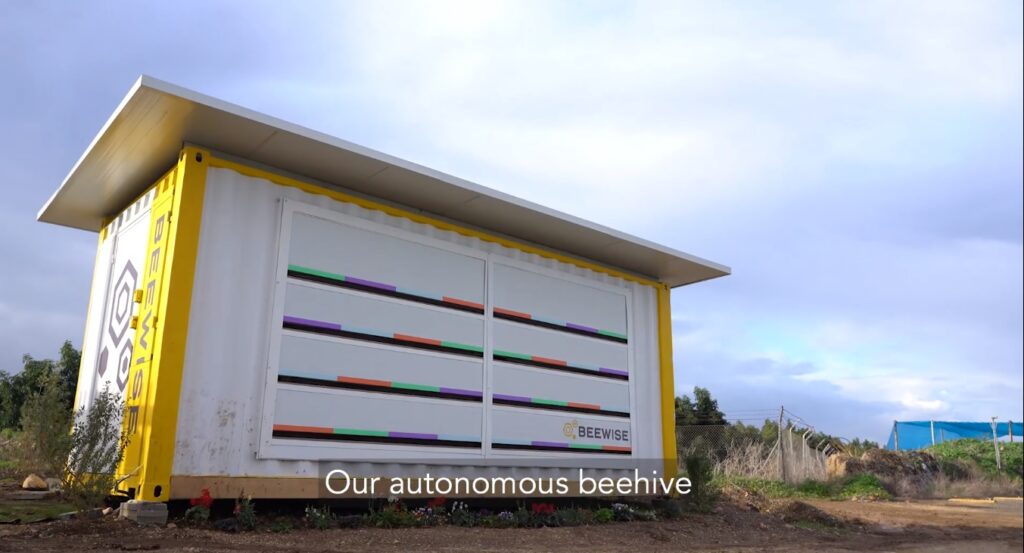Israeli startup Beewise, the developer of the first automated beehive, raised $10 million in a Series A funding round led by Israeli private equity firm Fortissimo Capital, Venture Beat first reported on Tuesday. Israeli VC firms lool Ventures, Arc Impact, and Atoroo Fund also participated in the round, as did Michael Eisenberg, a seasoned investor and the co-founder of venture firm Aleph.
Founded in 2018, Beewise created Beehome, a solar-powered, retrofitted shipping container that can house up to 40 bee colonies in an automatically controlled climate for optimal humidity conditions that can be monitored via app. The beehome also has pest control functions that monitor for parasitic mites that can have detrimental effects on colonies. AI technology adjusts conditions in the Beehome when it identifies that a colony is preparing to swarm, and Beehomes send alerts to beekeepers once a container of honey reaches its 100-gallon capacity. All of these changing conditions ensure that yields improve, pollination occurs more efficiently, and bee populations are protected. Beehome costs $15 per month per hive.
Beewise co-founder and CEO Saar Safra says the new investment will be used to meet global demand from beekeepers and crop owners, according to Venture Beat.
“We are seeing a lot of demand from companies that grow pollination-dependent crops like avocados, almonds, apples, and coffee,” he told the publication. “Farmers and other food producers are very concerned about the fact they’re not getting their pollination. They reach out to us because they see how … bee colonies thrive in our device, and they want us to work with their beekeepers … Beewise is not reinventing beekeeping; all we are doing is allowing beekeepers to apply the same treatments they are applying in the field today but in real-time and with a lot more data and effectiveness.”
Pollination is one of the most significant biological processes for the world’s ecosystems, with about 75 percent of the world’s crops relying at least in part on animal pollination, according to the World Bee Project. The transfer of pollen from the male anther of a flower to the female stigma, pollination allows for fertilization to occur, resulting in seeds, fruits, and vegetables. Pollination often occurs either via wind, for grasses and cereals, or by animals, primarily by honey bees.
However, global bee populations have been declining over the last few decades; bee populations often face colony collapse disorder, which occurs when the majority of worker bees in a colony disappear and leave behind a queen and a few nurse bees to care for the queen and the remaining immature bees. This disorder, on top of excessive use of agricultural chemicals and climate change, has significantly reduced bee populations, yet agricultural production must grow by 70 percent by 2050 to avoid food scarcity.
Noah Sheidlower contributed to this report.
SEE ALSO: 7 Israeli Bee Tech Firms Protecting Bee Populations And Global Agriculture
Related posts

Israeli AI Safety Tool Among TIME’S Best Inventions For 2024

Editors’ & Readers’ Choice: 10 Favorite NoCamels Articles

TAU Team Discovers Mechanism To Eliminate Cancerous Tumors




Facebook comments